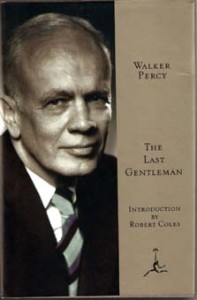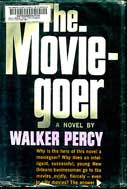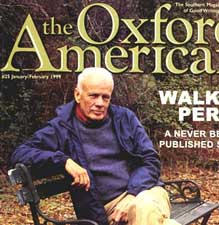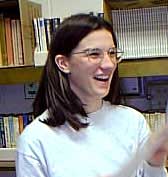Major Works
Fiction
- The Thanatos Syndrome (1987)

- The Second Coming (1980)
- Lancelot (1977)
- Love in the Ruins (1971)
- The Last Gentleman (1966)
- The Moviegoer (1961)
Non-fiction
- Lost in the Cosmos: The last Self-Help Book (1983)
- The Message in the Bottle: How Queer Man Is, How Queer Language Is, and What One Has to Do with the Other (1975)
- Novel-Writing in an Apocalyptic Time
Walker Percy: A Biography
by Christina Collins (SHS)
Walker Alexander Percy, a writer who was raised in Greenville, Mississippi, was born to Leroy and Martha Percy on May 28, 1916, in Birmingham, Alabama. His parents later had two other sons, Phin and Roy. Young Walker had a hard life. At the tender age of thirteen, his father, a successful lawyer in Birmingham, took his own life in the attic of their home with a shotgun. Just two years later, his mother drove her car off a country bridge. Some say it was accidental; but young Walker at the age of fifteen, suspected she, too, had taken her own life (Benfey 2) .
The three orphaned boys were sent to live with their father’s cousin, William Alexander Percy, a writer himself, who lived in Greenville, Mississippi. This move was most likely the best happening in Walker Percy’s life. The boy grew up surrounded by books, works of art, and a piano that was never quiet. (Benfey 2) “Uncle Will,” as the Percy boys called him, wrote a book of his own titled Lanterns on the Levee: Recollections of a Planter’s Son and is said to have influenced Walker Percy’s writing (Hansen 1). Another person that perhaps encouraged Percy to turn to writing was Shelby Foote, who also grew up in Greenville, Mississippi. The two developed a lifelong friendship and wrote regularly to each other. Their letters have been published in a book called Conversations between Percy and Foote.
Walker Percy studied chemistry at the University of North Carolina in Chapel Hill. Upon graduation from college, he decided to enter medical school. Although his grades were not exceptional, he was accepted to the College of Physicians and Surgeons, Columbia University’s medical school. In 1941, Percy graduated with honors and started an internship at Bellevue Hospital in New York. However, his internship was cut short due because Percy contracted tuberculosis. In 1942, Walker Percy was forced to leave Bellevue to recuperate from pulmonary tuberculosis. He later returned to Columbia to teach. After a relapse of TB, however, he was forced to retire from medicine permanently after just three short years (Abbott 774).
 Walker Percy began a writing career, using two primary genres: novels, six of which would be published, and philosophical essays. (Benfey 3) He married a medical technician named Mary Bernice Townsend on November 7, 1946. Percy and his family returned to the South. First, he and his new wife lived in New Orleans. Later they moved to Covington, Louisiana, where they raised their two daughters, Ann Boyd and Mary Pratt. (Contemporary Authors)
Walker Percy began a writing career, using two primary genres: novels, six of which would be published, and philosophical essays. (Benfey 3) He married a medical technician named Mary Bernice Townsend on November 7, 1946. Percy and his family returned to the South. First, he and his new wife lived in New Orleans. Later they moved to Covington, Louisiana, where they raised their two daughters, Ann Boyd and Mary Pratt. (Contemporary Authors)
Of Percy’s six novels, three received numerous honors and awards. The Moviegoer received the National Book Award for fiction in 1962. Love in the Ruins .in 1972 was awarded the National Catholic Book Award. Percy received the Los Angeles Times Book Prize, a National Book Critics Circle citation, an American Book Award nomination, a Notable Book citation from the American Library Association and a P.E.N./Faulkner Award for his book The Second Coming. In addition, Lost in the Cosmos: The Last Self-Help Book won the St. Louis Literary Award in 1986.
Walker Percy wrote for more than thirty years. He combined interesting fiction with serious ideas in his writings. Some have even called him “the Dixie Kierkegaard” because he dealt with the nature of the universe and man’s place in it. Many books and articles are still being published about either Percy or one of his works. He died from cancer at the age seventy-four on May 10, 1990.
The Moviegoer: An Analysis of Walker Percy’s First Novel
by Christina Collins (SHS)
The Moviegoer, Walker Percy’s first novel, is the story of a confused bond salesman and his chaotic life. John “Binx” Bolling, the protagonist of the novel, is a man of thirty that strives to please his family and do right by his name. His business proves to be quite successful, although Binx must get new secretaries periodically because he becomes involved with them. Despite his experiences in the Korean War (he was wounded), Binx puts his trouble behind him and tries to help his cousin-by-marriage, Kate Cutrer, with her problems.
Binx receives a summons from his aunt, which he knows means she wants a favor. Aunt Emily tells him the latest information dealing with her stepdaughter Kate’s medical condition, which has everyone worried. It seems she is not doing too well, and Aunt Emily believes only Binx and Sam, another relative, can convince Kate to come out of her confused world.
Binx and Kate are always straightforward with each other. They say exactly what is on their mind, even if someone gets hurt. Throughout the novel, Binx proposes to his cousin-by-marriage on several different occasions, sometimes jokingly, but mostly in all seriousness. The strange thing about this is her response–she will say no, and then ask what it would be like and if he would treat her well. The unlikely relationship that develops is beyond anything imaginable.
 The Moviegoer takes place during the Carnival Week or Mardi Gras celebrations in New Orleans in the late 1950’s. The story begins on the Wednesday before this week of masquerade and discovery. The revelations at the end occur on Ash Wednesday, the day after Fat Tuesday. Kate and Binx sit in her 1951 Plymouth discussing marriage and the condition in which the relationship can work, while they watch the people come out of church with their hair roots smudged.
The Moviegoer takes place during the Carnival Week or Mardi Gras celebrations in New Orleans in the late 1950’s. The story begins on the Wednesday before this week of masquerade and discovery. The revelations at the end occur on Ash Wednesday, the day after Fat Tuesday. Kate and Binx sit in her 1951 Plymouth discussing marriage and the condition in which the relationship can work, while they watch the people come out of church with their hair roots smudged.
After the two get married, Binx keeps his promise to never leave her alone and to tell her what to do everyday. Kate keeps her promise to not hurt herself, while they both recover from the wounds inflicted by life. The conclusion of the novel offers no solid answers but leads the reader to make his/her own judgments. All of the characters make interesting comments that make one ask the question that is on the cover of the paperback edition, “Could this really happen?”
The Moviegoer was a good book, despite its slow-reading story line. The end was unexpected. Since the ending was unpredictable, I had the desire to know what would be come of the characters, and I pressed on.
Related Websites
- Walker Percy: A documentary film
- Walker Percy Movie website
- Walker Percy is dead at 74: A novelist of the New South. New York Times (1990)
- The Walker Percy project
- Walker Percy Center for Writing and Publishing. Loyola University
Bibliography
- Abbott, Dorothy. Mississippi Writers: Reflections of Childhood and Youth. IV vols. I: 774. Jackson: University Press of Mississippi, 1985.
- Benfey, Christopher. “Love in the Ruins.” The New Republic. (1997) September 8, 15.
- Bottom, J. “Just the Facts, Ma’am.” Commonwealth. July 18, 1997. Vol. 124. p. 22.
- Contemporary Authors. Volume 23. Detroit: Gale Research Co., 1984.
- “The Dream Screen in the The Moviegoer.” Papers on Language and Literature. (1994)
- Winter Hansen, Ron. “Walker Percy: A Life.” America. May 24, 1997.
- Percy, Walker. The Moviegoer. New York: Alfred A. Knopf, Inc., 1961.


